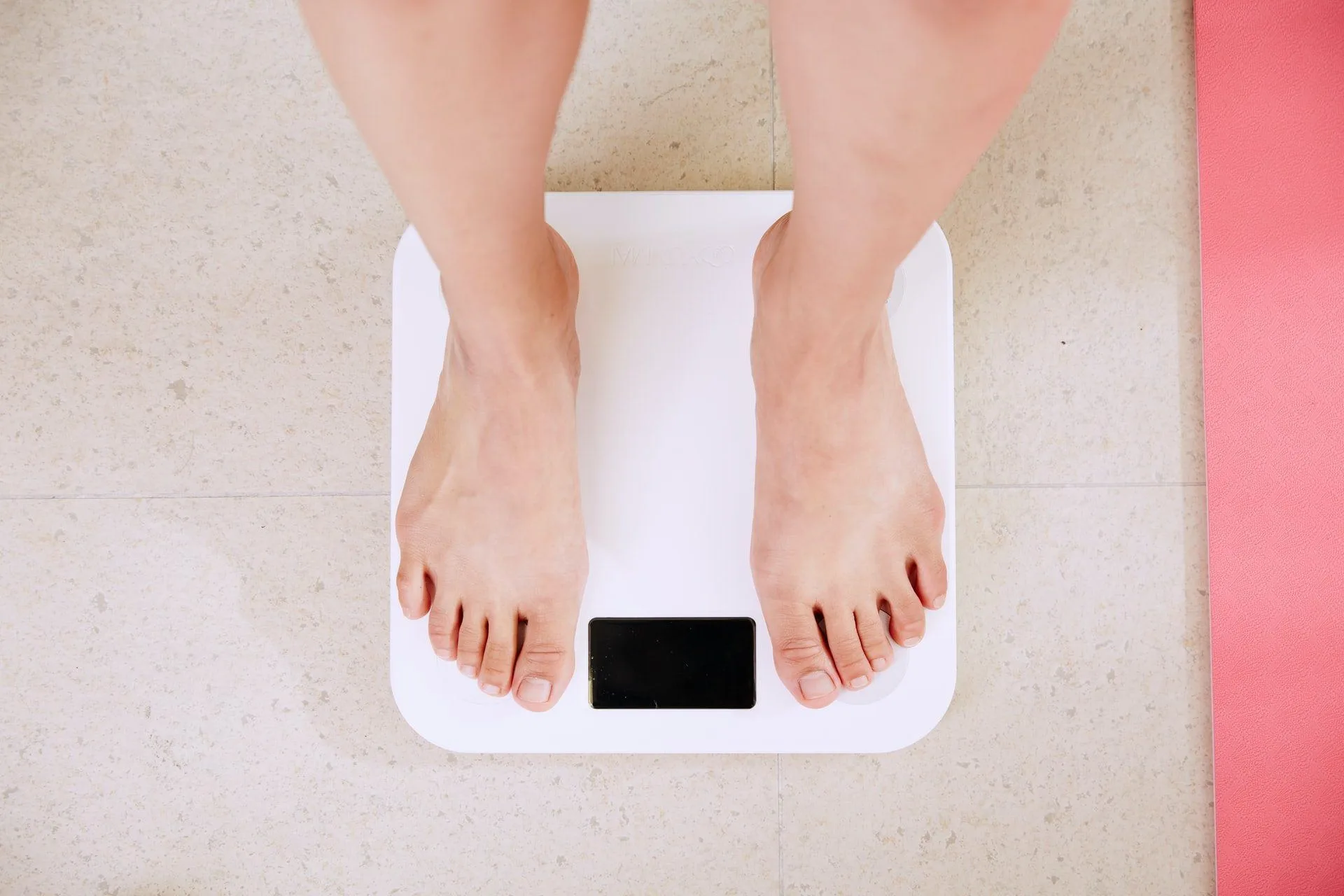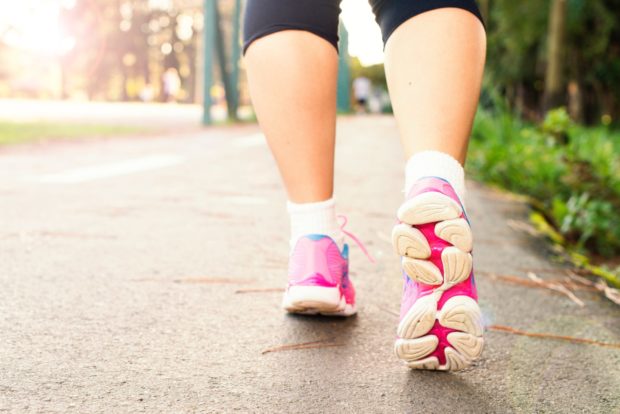Hormonal changes in menopause can cause weight gain in women. This brings with it various health implications, both physical and mental. Here’s how to keep the weight off for better longevity.
What Causes Weight Gain During Menopause?
The hormonal fluctuations of menopause may increase the likelihood of weight gain, especially around the tummy area. However, hormonal changes alone may not always induce weight gain during menopause. In most cases, the weight increase may be due to aging, lifestyle, and hereditary factors.
Typically, muscle mass decreases with aging, whereas fat increases. Loss of muscle mass slows down your metabolism. That might make maintaining a healthy weight more difficult.
If your current eating habits and levels of physical activity do not improve, you will gain weight.
Your genes may determine your weight gain
There may also be a genetic component to menopausal weight gain.
According to a UCL study, “Women commonly experience hot flashes and weight gain, among other changes, during and after menopause. Hormone therapy, which gives women additional estrogen, can help alleviate some of these symptoms, but it has been linked to a higher risk of heart disease and breast cancer.”
The UCLA scientists reported a gene called reprimo, which is expressed by certain neurons in the brain, may play a role in menopause-related weight gain, a phenomenon not linked to increased eating.
If your parents or other close relatives carry excess abdominal fat, you are also prone to gain weight.
Other factors, such as a lack of exercise, bad food, and insufficient sleep, may also increase weight during menopause. People who are sleep deprived tend to nibble more and eat more calories.
How Dangerous Is Weight Gain Following Menopause?
Menopause-related weight gain can have severe health consequences. Excess weight, particularly around the waist, raises your risk for the following health problems:
- Breathing difficulties
- Cardiovascular and vascular disease
- Type 2 diabetes
In addition to increasing your risk for breast, colon, and endometrial cancers, obesity also raises your risk for other forms of cancer.
What Are The Best Ways To Avoid Gaining Weight After Menopause?
Sadly, there is no secret technique that exists to prevent or reverse menopausal weight gain. It is as simple as sticking to these weight control fundamentals:
Exercise more
Physical activity, such as aerobic exercise and strength training, can aid in weight loss and maintaining a healthy weight. As you grow muscle, your body burns calories more effectively, making it simpler to maintain a healthy weight.
Experts recommend moderate aerobic activity, such as brisk walking, for at least 150 minutes per week, or strenuous aerobic activity, such as running, for at least 75 minutes per week for most healthy individuals.
Additionally, weight training should happen at least twice each week. Depending on your fitness goals, you may need to exercise more.”
Eat less
To maintain your current weight or remove extra kilograms, you may require around 200 fewer calories per day in your 50s. That may be less compared to your 30s and 40s.
To cut calories without sacrificing nutrients, be mindful of what you eat and drink. Select more fruits, veggies, and whole grains, especially those that are a little processed and high in fiber.
![menopause needs fruits and veggies better when they're in-season [longevity live]](data:image/svg+xml;base64,PHN2ZyB3aWR0aD0iMSIgaGVpZ2h0PSIxIiB4bWxucz0iaHR0cDovL3d3dy53My5vcmcvMjAwMC9zdmciPjwvc3ZnPg==) Add this and reduce that
Add this and reduce that
A plant-based diet is often healthier than other alternatives. Good options include legumes, nuts, soy, salmon, and low-fat dairy products. Eat red meat and poultry in moderation.
Replace butter and margarine sticks, and shorteners with olive or vegetable oil.
Research proves a good diet reduces the risk of obesity
Research published by the University of Navarra in Spain revealed eating one or two meat-free meals a week halves the risk of becoming obese.
The research, which involved tracking 16,000 people over a decade, found that eating just 25 per cent less meat every week was linked to a reduction in the risk of obesity by 43 per cent.
Limit alcohol
Alcoholic beverages add extra calories to the diet and increase the chance of weight gain.
Alcohol may contribute to weight gain in several ways:
- It prevents your body from burning fat.
- Alcohol is high in kilojoules.
- It can make you feel hungry.
- It can induce you to make bad eating choices.
Whether or not you gain weight from alcohol depends on what you drink, how much you drink, how often you drink and what you eat while drinking.
In addition to the possibility of weight gain, excessive alcohol use poses severe health hazards, including high blood pressure, high triglycerides, insulin resistance, heart disease, stroke, liver disease, and some malignancies.
Get help
Surround yourself with friends and family supporting your efforts to improve your nutrition and physical exercise. Even better, make lifestyle modifications as a group.
Remember that effective weight loss at any age requires persistent dietary and activity modifications. Commit to lifestyle modifications to prevent menopause-related weight gain.
References
Mayo Clinic: Menopause Weight Gain
Web MD: Sarcopenia with aging
UCL Study: Insights into menopause and weight
Sleep foundation: Sleep deprivation may increase calorie consumption
Nddk NHI: Adult health risks of overweight and obestity
NHS: Cardiovascular Disease
Mayo Clinic: Type 2 Diabetes
Science Daily: Eating a diet rich in fruit and vegetables could cut obesity risk
About the author

Murray Hewlett
Murray Hewlett is the founding CEO of Affinity Enterprises The company addresses an ever-growing need for affordable health services. You can read his full biography below.




![menopause needs fruits and veggies better when they're in-season [longevity live]](https://longevitylive.com/wp-content/uploads/2020/03/pile-of-assorted-varieties-of-vegetables-2255935-213x320.jpg) Add this and reduce that
Add this and reduce that

![women [longevity live]](https://longevitylive.com/wp-content/uploads/2020/01/photo-of-women-walking-down-the-street-1116984-100x100.jpg)










